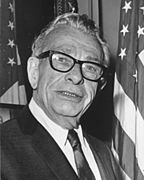United States Senate election in North Carolina, 1962
|
| ||||||||||||||||||||||||||||||||||||||||
| ||||||||||||||||||||||||||||||||||||||||
|
39 of the 100 seats in the United States Senate 51 seats needed for a majority | ||||||||||||||||||||||||||||||||||||||||
|---|---|---|---|---|---|---|---|---|---|---|---|---|---|---|---|---|---|---|---|---|---|---|---|---|---|---|---|---|---|---|---|---|---|---|---|---|---|---|---|---|
|
| ||||||||||||||||||||||||||||||||||||||||

Results including special elections
Democratic gain Republican gain Democratic hold Republican hold | ||||||||||||||||||||||||||||||||||||||||
| ||||||||||||||||||||||||||||||||||||||||
|
| |||||||||||||||||
|
| |||||||||||||||||
|
| |||||||||||||||||
| |||||||||||||||||
|
| |||||||||||||||||
|
| |||||||||||||||||
|
| |||||||||||||||||
 County Results
| |||||||||||||||||
| |||||||||||||||||
|
| |||||||||||||||||
|
| |||||||||||||||||
|
| |||||||||||||||||
| |||||||||||||||||
The United States Senate elections, 1962 was an election for the United States Senate which was held in the middle of President John F. Kennedy's term. His Democratic Party made a net gain of three seats from the Republicans, increasing their control of the Senate.
Both Republican-held senate seats in New Hampshire were up on election day due to a special election. The appointee lost election to a full term to the Democratic challenger while the incumbent Republican was reelected. As such, this is the last time that one of a state's two senate seats, both up on election day, that were held by the same party changed parties.
Through open seats due to retirements, Democrats gained two seats.
Democrats had a net gain of two seats in election upsets.
The Democrats' four-seat net gain was reduced by one seat between the election and the next Congress.
In these special elections, the winner was seated during 1962 or before January 3, 1963; ordered by election date, then state.
In these general elections, the winners were elected for the term beginning January 3, 1963; ordered by state.
All of the elections involved the Class 3 seats.
Incumbent Republican Milton Young was re-elected to his fourth term, defeating North Dakota Democratic-NPL Party candidate William Lanier of Fargo. Only Young filed as a Republican, and the endorsed Democratic candidate was Lanier, who had previously faced Young in a special election held in 1946 to fill the seat which was vacated by the late John Moses. Young and Lanier won the primary elections for their respective parties. No independents ran.
...
Wikipedia







